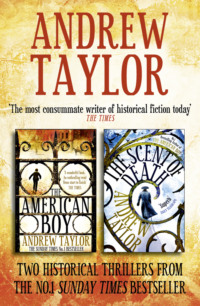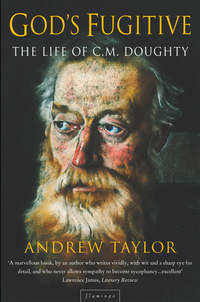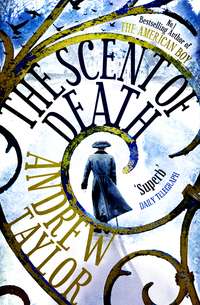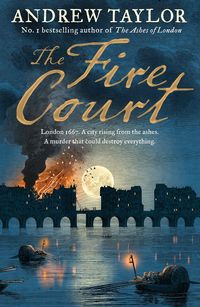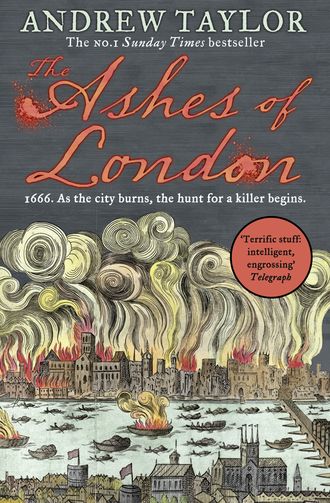
Полная версия
The Ashes of London
‘No. He always sends word to me. Safer that way.’
‘How?’
Jem shuffled, easing the weight on his lame leg. ‘I was told not to tell you.’
She scowled at him. ‘My father hasn’t seen me for six years. He forgets I’m not a child any more. So do you, but with less reason.’
He stared at her for a long moment. ‘There’s a man,’ he said at last. ‘He brings me a letter sometimes, or sometimes just a message. And he takes them from me in return. Yesterday he told me that you should go to St Paul’s, that your father would find you there in Paul’s Walk.’
‘Who is this man? Where can you find him?’
‘I don’t know, mistress.’
She glared at him. ‘You must know something.’
He hesitated and then said slowly, ‘He lives somewhere near Cursitor Street. I think he might be a tailor. I saw him sometimes in the old days.’
‘Then I shall go there and look for him. If my father isn’t with him, then perhaps he will know where he is.’
‘I won’t let you,’ Jem said. ‘It would be folly. Let me see if I can find him. Better still, be patient until he sends word.’
‘No. I shall go. You must help me.’
Jem shook his head. ‘It’s too dangerous. If they find your father in London, they will put him on trial for treason. And anyone they find helping him.’
She raised her hand to slap his face. Slowly she lowered it. ‘Why are you being so obstinate, old man? One word from me, and they will turn you out on the street.’
‘Then say it,’ he said. ‘The one word.’
The long evening drew at last to a close.
Uncle Alderley and Cousin Edward had been into the City and then as far west as Whitehall. At supper, they were full of what they had seen. The Fire was diminishing, though it was still burning steadily and there was always the danger it would reach the great powder magazine in the Tower, particularly if the wind veered again. The great exodus from the City had continued. Perhaps seventy or eighty thousand people had fled. They were flooding into the unburned suburbs, to Houndsditch and the Charterhouse, to West Smithfield and Clerkenwell, and even to Hatton Garden, where they were lapping around the walls of Barnabas Place itself.
‘They are like people in a melancholy dream,’ Master Alderley said. ‘They simply cannot understand what has happened.’
The refugees camped wherever they could. The park at Moorfields was packed with them – more than twenty acres of ground covered with a weeping, moaning, sleeping mass of humanity. Some had gone over the river and set up camp in St George’s Fields, where the ground was marshy even in this sweltering summer, and evil humours rose from the ground at night. Others – the more active or the more terrified – had gone further still, to the hills of Islington.
‘God knows where it will end,’ Master Alderley said. ‘Once people leave the City, why should they come back?’
Alarm flared in Olivia’s face. ‘But what shall we do, sir?’
‘You need not worry, my dear. They will always need money wherever they go. I have taken precautions. So we shall do very well, whatever they do with London’s ashes.’
She leaned over the table and patted his hand. ‘You are so wise, sir.’
Master Alderley withdrew his hand at once, for public displays of feeling disturbed him; but he was not displeased with this show of wifely admiration.
‘Is Layne back?’ he demanded.
‘No, sir.’
‘Then we shall have to turn him off. I know you brought Layne into the household, but I cannot have a servant who will not attend to his duty.’
‘It may not be his fault. Perhaps the Fire has delayed him. Perhaps he has had an accident.’
Master Alderley frowned. ‘We shall see. In the meantime, we must find another man to wait at table. I don’t wish to have that cripple again.’
‘No, sir. Of course not.’
‘We saw Sir Denzil,’ Edward said in a moment. ‘He was attending the Duke of York.’ He turned to Cat, which meant that his father and his stepmother could not see his expression. ‘He and I drank to your betrothal, cousin, and to the speedy arrival of an heir to Croughton Hall.’
‘That would suit us all very well,’ Master Alderley said. He gave Cat a rare smile. ‘We shall have you wedded by Christmas and brought to bed of a fine boy by Michaelmas next year.’
‘So be sure to cultivate this French cook of his, cousin,’ Edward murmured, too low for his father to hear. ‘French cooks are always men of infinite subtlety and resource. I am sure Sir Denzil’s will know how to set his master on fire for you.’
After supper, Olivia took Cat up to her own bedchamber to discuss the wedding, its location, who should be invited, and what she and Cat should wear.
Ann came to undress her mistress while they talked. Olivia sat at her dressing table wearing a bedgown of blue silk trimmed with lace, with four candles reflected in the mirror and throwing their murky light on her face. The warm air was heavy with perfume.
The subject was of absorbing interest to Olivia, and the discussion – the first of many, no doubt, she said with a smile – went on for longer than Cat would have believed possible.
Cat’s eyes strayed to the great bed that stood in the shadows, surmounted by a canopy. She imagined Uncle Alderley – so staid, so old, so disgusting – heaving and twisting and grunting there. The thought of it, together with the perfume and the suffocating sense of femininity that seemed to fill the room, made her feel ill.
Olivia did not belong with Uncle Alderley. She could not enjoy his attentions, Cat thought, though in public she behaved with impeccable obedience towards her husband. But Cat had heard their raised voices through closed doors.
Was this what marriage meant? This unnatural union? This heaving and twisting and grunting? A public show of devotion concealing private quarrels and secret lusts?
Ann left the room to fetch hot water.
‘Well?’ Aunt Alderley said. ‘Is it not exciting? You have so much to look forward to. They say Croughton Hall is very fine.’
Cat sat forward in her chair so she could see the reflection of her aunt’s face wavering in the mirror. ‘Madam,’ she said, ‘I don’t want to be married to Sir Denzil. I mean it. Is there no way—?’
‘But, child, you must let those older and wiser guide you.’
‘He doesn’t please me.’
‘So you’ve said. But it’s nonsense, my dear. Liking will come later, if God wills it, as it does in most marriages. You must not concern yourself about it now. Remember, he has everything to recommend him, including the fact that your uncle is in favour of the match.’
‘But he’s so—’
Aunt Alderley shook her head. ‘Not a word more, my dear. You’re overtired, and this makes you say foolish things. Besides, this horrible Fire has upset us all.’
There was a tap on the door, and Ann entered with a jug of steaming water.
‘We’ll discuss the question of jewellery later,’ her aunt said in a brisk voice. ‘But now, my love, you must go to bed. You have great circles under your eyes. Shall Ann come with you and undress you?’
‘No, madam. But thank you.’
When she was released, Cat climbed the stairs to the floor above the main bedchambers, candle in hand. She had walked this way so often that she could have done it in the dark.
Every now and then she passed a window that gave glimpses of London glowing like a bed of coals in the night. It seemed to her that the fire was less bright than it had been, as if its fury were gradually dying. Occasionally there were muffled explosions. The work of demolition continued.
For an instant, a vision of a new London rose in her mind, growing from this bed of coals: a town of great piazzas and avenues, of lofty churches, and of fine buildings of brick and stone. She would get out her drawing box and her papers when she was safely in her room. She would map an outline of this new and glorious city. The box had been a gift from her other aunt, Great Aunt Eyre; it reminded her of a time when she had been happy.
Cat raised the latch on her door and entered the chamber. Once inside, still with the candle in her hand, she inserted a wooden wedge above the latch so it could not be raised from the outside. She had fashioned the wedge herself, from a splinter of kindling, using a knife she had sent Jem to buy.
She put down the candle on the table under the window and tugged the laces that tied the bodice of her dress.
There was a chuckle behind her. She sucked in her breath and spun round.
‘Pray let me assist you, my sweet.’
Edward was standing almost at her shoulder. For a moment it was as if he had materialized from nothing, like the evil spirit he was. Chasing after that came the realization that he must have been waiting for her in the gap between the side of the big press and the corner of the wall.
He smiled at her. He wore his bedgown of padded silk trimmed with fur. Around his head he had wound a silk kerchief. He looked younger without his periwig, more like a bloated version of the boy he had once been.
The boy who had pulled her hair and put a dead crow in her bed.
‘Go away,’ she said, retreating. ‘I shall scream.’
‘Scream all you like, my love. No one will hear.’
He seized her as he spoke. His left arm circled her head and the hand clamped over her mouth and nostrils as he pulled her towards him. His right arm wrapped itself around her waist.
She struggled for breath. She kicked his shins but her soft indoor shoes made no impression on him.
Her left hand swept over the table and touched the candlestick. She picked it and jabbed the flame of the candle into his cheek. The light died. He swore. His grip tightened.
‘Hellcat,’ he whispered.
Darkness came. And pain.
CHAPTER SEVEN
NOTHING LASTS FOR ever, Cat thought, for was there not always death to make an end of it?
She lay in the darkness. She was on her back still, her legs apart, her dress rucked up, for what was there to be modest about any more? The pain in her body was acute but strangely remote, as if it belonged to someone else, someone she had once known well and now was a stranger.
Sometimes a church clock struck the hour. That was strange too, the very idea that this devastated city still contained churches with clocks and bells that told the time.
Churches among the ashes of the dead.
Gradually other thoughts drifted into her mind. She could go to Aunt Olivia, praying to God she would not find Uncle Alderley tossing on top of her in the canopied bed.
But Olivia would say that those things were only to be expected, that this was what gentlemen always tried to do to pretty maids, and even to less pretty ones. She would say that Cat should have taken better care of herself, and above all she would say that it was Cat’s fault.
It was the way of the world. Men always tried to make love to women. That was what Olivia had said in the spring, when she had turned away a servant who had got herself with child. Cat had argued that the man should bear at least some of the blame.
‘But it was her fault, Catherine,’ Olivia had said, ‘just as it was Eve’s. A woman leads a man into sin, that’s what your uncle says, and of course he is right. The girl should have managed it better, and now she must live with the consequences. And there’s an end to it.’
Would they throw Cat into the streets, a defiled woman to live in the gutter as best she could? Probably not – they would simply pretend it had not happened. Master Alderley had his heart set on her marrying Sir Denzil, and Master Alderley was not a man who changed his mind once it was made up.
Another thought struck her. If she told her uncle and aunt, would they even believe her?
As a child Cat had been thrown from a horse and landed awkwardly on a heap of stones. This had been almost a year before she first had her courses and her body began to change. But after the fall, she had bled from the place where women bleed at that time of the month.
Cat felt herself but could not feel anything except pain. If there were no token of blood to show that she had lost her virginity, then why indeed should they believe her? In that case, it would be her word against Edward’s. Her word was worth nothing. But in his father’s eyes, Edward could do no wrong. She was merely the unwanted niece, a relation by law but not by blood, the child of a man whose name was not mentioned. To the Alderleys, her only value was as something to be traded, bought and sold.
Something to be robbed. Something to be defiled.
Even Jem had abandoned her. He would not help her – besides what could a crippled servant do? He would argue caution in all things, just as the foolish old man always did.
Time passed.
Never forget, never forgive.
Quite suddenly she knew what she would do. The decision arrived ready-made, needing no thought. It was there because nothing else was left to her.
The click of the latch made Cat catch her breath. She opened the door and listened.
The sounds of Barnabas Place settled around her – the creaks, the pattering of rodents, the whispering of draughts. The air was stuffy and still very warm.
She held up the candle, which accentuated the gloom. Her eyes adjusted slowly. This was the darkest hour before dawn. But the Fire still tainted the night sky. An uncurtained window at the end of the landing framed a sullen red glow.
With the bundle under her arm, she stepped from her room and closed the door. She wore her plainest dress. Her shoes were in the bundle, together with a leather bag containing a few small possessions, among them her box of drawing instruments.
Over her shoulders was the grey cloak she had stolen last night from the young man at St Paul’s. She felt a momentary pang of guilt. He had tried to help her, after all – had perhaps saved her life when she had panicked and run towards the cathedral in search of her father. She couldn’t remember much of what he had looked like, apart from the fact that he had been so thin you could see the skull beneath the skin. Also, he had heavy, dark eyebrows that belonged on a larger, older face.
Movement sent spikes of pain deep inside her body. She passed under an archway, turned right and hesitated at the head of the main staircase. Her candle was the only light.
These stairs led down to the balustraded landing, with rugs on the floor and sconces on the polished wood of the panelling, and with ornate plaster mouldings on the ceiling. All the magnificence was invisible.
Olivia’s chamber was down there, with the canopied bedstead. Beside it was Master Alderley’s closet, which had a bed in it, as well as a table, a large inlaid cabinet of Dutch manufacture and a number of presses. The third chamber was empty.
She listened, but all was quiet.
Cat continued down the landing to the archway to the spiral staircase. She found her way by touch, by memory, and by the variations in the darkness of shadows beyond the candlelight. She paused at every step and listened, though she desperately wanted to hurry. This, in reverse, was the route she had used last night, when Jem had brought her up to her chamber.
On the floor below, a door led to the side landing beyond. Unlike the main landing, which was within the shell of what had been the prior’s lodging in the days when the old monks had lived at Barnabas Place, this landing gave access to a different range at right angles to it. Her own chamber was in the upper floor of this building.
The landing took the form of a passage running along its outside wall, with four doors at intervals on the right-hand side. All these doors were closed. She slipped down the passage to the third door. Here she paused, and listened.
The sound of deep, rhythmic snoring reached her. She put down the bundle. She crouched until her cheek touched the ground. A current of air flowed through the gap under the door. But there was no light in the chamber beyond.
Cat stood up, wincing as another spike of pain stabbed her. The other rooms on this landing were unoccupied; they were furnished as bedchambers for the guests that so rarely came. At one time, Edward had slept in the third bedchamber in the main range, but his habit of returning in the early hours, usually drunk, had irritated Master Alderley beyond endurance; and in the end he had ordered his son to move into this wing.
She pushed her hand into her dress and took the knife from her pocket. She raised the latch.
The door opened silently – Olivia would not tolerate a squeaking hinge in any house of hers. The snoring increased in volume. Cat became unpleasantly aware of a fetid smell that reminded her of the wild beasts in the menagerie at the Tower.
Shielding the candle flame, Cat advanced into the darkness beyond. What little light there was showed her the curtains drawn about the bed. It also caught on someone standing beside it in the dark – a dwarf-like man with a great wig; and for a nightmarish instant she thought that Sir Denzil Croughton was waiting for her. The candlestick dipped in her hand, and she almost let it fall. Then reason reasserted herself: what she saw was Edward’s periwig on its stand.
The snoring continued. Cat drew back the curtain and held up the candle so its light shone into the bed.
Edward was lying on his back. For an instant she didn’t recognize him: he had taken off the silk handkerchief he wore at home when he was not wearing his wig. His naked scalp was as bald as a newly peeled potato and not unlike one in shape. He had thrown off the covers in the heat. He wore a white linen nightgown, open at the neck.
The snoring stopped without warning. In the sudden, dreadful silence, Edward was looking at her. She saw his eyes, with twin flames burning in them, one for each pupil, reflecting the candle.
Cat did not think. She jabbed the knife at the nearer eye. The tip snagged for a moment when it touched him, then it dug into the eyeball, which wobbled beneath the pressure like a boiled egg without its shell when you speared it with a knife.
His body bucked in the bed and he let out a scream as high-pitched as a girl’s. His arm swung up towards her. She reared back. The candle tilted in her hand. The flame caught the edge of the bed curtain.
The blood looked black in this light. It gleamed like liquid ebony.
The flame ran up the side of the curtain and gave birth to another flame, and then to a third.
Edward writhed on the mattress, wailing and crying, his hands covering his face.
Cat turned and ran. The candle was in her hand, by some miracle still alight, though the flame was dancing and ducking like a wild thing.
Behind her, the screams continued, the flames rose higher, and the chamber grew brighter and brighter.
‘Mistress …’
She gasped and dropped the bundle.
The whisper came from her left. She heard the laboured breathing mingling with her own. Down here in the cellar, with the stench from the cesspit oozing through the wall, it was very quiet. You could hear and see nothing of what might be going on in the rest of the house. The screams. The flames.
‘Jem.’ She was panting, and the words came singly, in fits and starts. ‘What are you doing?’
‘Waiting for you, mistress.’
He stirred beside her in the darkness. She raised the candle. His pale face was at her elbow.
‘You said you wouldn’t help me,’ she said.
‘I am not here to help.’ His breath wheezed. ‘I feared you would come. I’m here to stop you. Have you not thought? Your father may well be dead.’
She stooped for her bundle. ‘Something’s happened. It changes everything.’
‘Nothing’s changed outside. It’s as dangerous as ever.’
She said bluntly, ‘It’s more dangerous here. Edward took me by force.’
‘Took you …?’
The horror in the old man’s voice gave her a perverse pleasure. She said, ‘He was waiting in my bedchamber tonight. He raped me.’
‘But you’re still a child.’
‘Not any more, you fool,’ she snapped, forgetting in her anger to lower her voice. ‘And so I went to him as he slept and I stabbed him in the eye.’
She felt his hand on her arm. A sob rose from her throat.
‘Is he dead?’ he asked.
‘I hope so.’ She took a deep breath and said in a rush, ‘I must go – go anywhere, anywhere but here.’
‘Then I’ll help you.’
‘There’s nowhere. Nowhere safe.’
‘But there is.’
She turned and blundered against him. His arms went around her. She was trembling but she did not cry.
‘Child,’ he said. ‘Child. You must go alone. I would slow you down. Go to Three Cocks Yard, off the Strand. The house to the left of the sign of the green pestle. Ask for Mistress Martha Noxon. She’s my niece, and they have no knowledge of her here. Give her this, and she will know you. Perhaps your father will find you there.’
Jem pressed something into her hand. It was small and smooth, curved, cold and hard.
‘Put it in your pocket.’ He gave her a little push. ‘And go. Go now.’
Somewhere in the distance was a faint, ragged baying, growing in volume. Thunder, Lion, Greedy and Bare-Arse were giving tongue.
CHAPTER EIGHT
I COULD NOT afford to anger Williamson any more than I had already done. I worked late that day and made sure I was at Whitehall early on the following morning, which was Thursday, the fifth day of the Fire.
The news was good. The wind had slackened and veered north, which made it easier for those fighting the Fire. There were reports that the Duke of York had halted the westward march of the flames at the Temple. God willing, the mansions of the Strand would be spared, and so would Whitehall itself. The fires were still burning vigorously elsewhere, but their relentless advance had been largely stopped.
I was already at work when Williamson came up to the office in Scotland Yard. I knew he was on his way for I had seen him from the window in the court below, deep in conversation with the portly gentleman with the wart on his chin. I expected him to be in a good humour because of the news about the Fire, but his face was grim and preoccupied. As soon as he came in, he called me over, commanding me to bring him the list of fatalities.
He scanned it quickly. ‘Good. No new ones overnight. God has been merciful.’ He lowered his voice. ‘But talking of death, Marwood, there’s one that isn’t recorded here.’
He paused, as if to consider some weighty aspect of the matter far beyond my understanding. I was used to that, for Williamson employed such tactics to build a sense of his own importance – in his own mind, perhaps, as much as in the minds of others.
‘We have a body,’ he said. ‘I think you’d better see it now.’
We clattered down the stone stairs, setting off a crowd of echoes, with Williamson leading the way. On the ground floor, he demanded a lantern from the porter. While we waited he turned to me.
‘A patrol went up to St Paul’s at dawn,’ he said in a low voice. ‘It’s like an oven in there, even now. A beggar told them there was a body in Paul’s Walk. In what’s left of a chantry chapel on the north side.’
‘Where the ballad-seller used to have a stall?’ I asked.
The cathedral’s nave, Paul’s Walk, had become a cross between a market, a public resort and a place of assignation in recent years. The ballad-seller made most of his income from his secondary trade, which was pimping.
Williamson nodded. ‘Two of the guards left their powder behind and went in and pulled him out.’
‘A victim of the Fire, sir?’
‘He’s definitely not the stallholder. And he can’t have been there long. Someone would have noticed him before the Fire.’
‘But why’s he here, sir?’ Surprise stripped the appropriate respect from my voice. ‘At Whitehall?’
The question earned a scowl. The porter brought the lantern. Williamson gestured to me, indicating that I should light the way for him.



